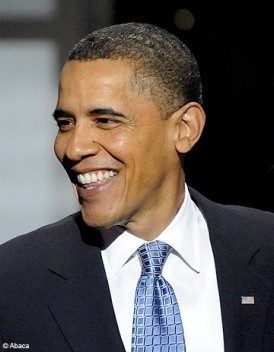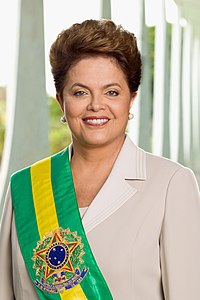According to the following article by Colin Horgan (see the article below), I must be in the category of “insiders”, although I do not really feel as being one.
I have been passionate about politics for a long time. During my childhood, I watched the passion of my father. Later, politics caught up with me.

Yves Robichaud (1930-2009)
My father, Yves Robichaud, was a general contractor in excavating. He build the Highway 40 connecting Montreal to the City of Quebec, over 300 kilometers of road. He build the concrete pylons that support the Laviolette Bridge, which links Trois-Rivières to the south shore, from one bank to another of the beautiful St. Lawrence River. My father, besides being passionate about Caterpillar, John Deer and other heavy machinery, talked about politics all the time. I grew up listening to stories of politicians. I used to visit shops of construction equipment around the country, where I accompanied my father in his business trips, from the age of 8 years old. Of course, the favorite topics of conversation were politics, along with heavy machinery, and hunting. I know as many good stories of caribou and bison as of politicians. Government officials were often invited for dinner at our house or for weekends at our chalet.
My father had three large garages for his excavating business, on top of owning a gas station, dozens of machines for excavation, and about half the land in the city of Trois-Rivières. He employed about thirty men, in addition to the contractors, such as 10-wheel trucks that carried day and night sand and rocks on construction sites.
I realized from a very early age, that in order to earn a living, entrepreneurs in construction had no choice but to stay very close to the politicians. My father attended many political events. He knew the Prime Minister of Canada and of Quebec, MPs, and was aware of every government decision. General election days were very dramatic in my family. I cannot forget the day when the Liberals lost their elections, and the Parti Québécois won in 1976. I thought my father had turned mad, mad with rage.
I have never built links with a political party in particular. However, I developed relationships with all parties at once.
When I became an adult, I wanted to make art. Not politics. I became interested in government business the day I received a tax bill of $ 3000 for an artist’s studio of 300 square feet. I lived in this small studio, and was taxed as a business. This is how my relationship with elected officials began, and they never really stopped since.
Since I have been 25 years old, the people I think about the most, who are constantly before my mind as a kind of screen saver, have been politicians. They are so close to my thoughts that I can almost read their minds.
I have always gone directly to the elected members of parliament or of city council. Most of my interventions aimed at this audience, not to government managers, who have little room to maneuver.
In the past, I was able to influence enough to change the law. Although I am not a lawyer, I can read the legislation and see where are the ‘holes’. Intuitive in nature, this played me tricks more than once, because I demanded changes even before having the arguments to explain my complaints. Often, I gathered the pieces of the final arguments through my discussions with officials, members of the community and reporters.
I continue to act in the same way I always acted. But this does not give anymore results.
Before, I managed to achieve goals by obtaining the support from organizations. For example, an artists’ association elected me as their president (I was therefore the designated spokesperson), while another association hired me to financially support my lobbying.
In the case of open government, there is nothing, no group, no institution, which exists in this area, which could be contacted and asked to provide support and funding. There is nothing at all.
As a simple citizen - just a citizen, it is beyond my financial capacity to fund the development of open government throughout Francophonie out of my own pocket. I would love to be able to do it. If I were a millionaire, I would happily build structures for development of open government everywhere. But this is not the case, unfortunately, I have no personal fortune. My father lost everything he had after the 1976 election. Such a financial burden should not be carried by the citizens. The government should invest money towards its own transformation into a new form of governance.
Politically disengaged Canadians not apathetic or uninformed, study finds
Wed, Dec 7, 2011, 12:45 pm by Colin Horgan, iPolitics
Politically disengaged Canadians may seem disinterested, apathetic or uninformed, but they are actually politically aware, but believe the system doesn’t work for them, according to new research from Samara.
The study,”The Real Outsiders: Politically disengaged views on politics and democracy”, was released by the citizen engagement research organization Wednesday.
While Samara admits that “no study, no matter how nuanced or far reaching, can fully explain all the complex factors that determine how we relate to our political system,” its research shows a “troubling situation.”
Canada’s political system has, according to Samara, “separated the Canadian public into insiders who have the capacity and energy to fight and remain engaged in the system, and outsiders who simply walk away out of frustration or disappointment.”
The study was based on eight focus groups, two made up entirely of women — one of Francophone women from Quebec, and another of English-speaking Quebec women. The researchers also spoke with groups made up of lower-income Canadians, less-educated young people, urban aboriginals, new citizens and rural Canadians. A group of engaged Canadians was also included for comparison.
Samara asked why and how individuals became disinterested in the political process.
Both engaged and disengaged Canadians were found to have a negative view of politics, and used words including “boring,” “greedy” or “untrustworthy” when describing Canadian politics. Similarly, politicians received the same treatment.
At the same time, Samara found participants still liked democracy and the rights and freedoms that come with it.
“Even disengaged participants, who admitted they did not regularly exercise their rights, described democracy in terms of freedom of expression and their right to vote,” the study found.
The problem is, those concepts remain abstract and Samara found that disengaged Canadians see no place for themselves within the political system.
“The disengaged never spoke of the political system as if it belonged to them,” says the study. “They never felt that they had any power to influence or control what happens inside the political system. Instead, they viewed themselves as passive observers of politics — not by choice, but simply by virtue of their place as outsiders.”
For the disengaged, politics is not a priority and not worth the energy when there are other personal matters to deal with. It’s rendered effectively irrelevant.
While some of those who were disengaged became that way after a bad experience — for example, attempting to affect change locally and finding little progress by contacting politicians — the study found others who were “taught the futility of engagement before they even had a chance to engage.” That was particularly true among less-educated youth.
That feeling, says the study, was reinforced by messaging that failed to speak to them. As a result, they expect little from their government.
As for the solution, it’s complex, the study said.
The study admits a solution will “not likely come in the form of a silver bullet.” However, it points to the media, Parliament and political parties as all having a role to play in reinvigorating the system, based on the findings.
“There is a silver lining to our research,” says Heather Bastedo, research and project director at Samara. “Disengagement is reversible given the right conditions, and Canadians told us they are not asking for much. They simply want to feel heard, they want their problems to matter and they want promises kept — they want to feel represented.”






